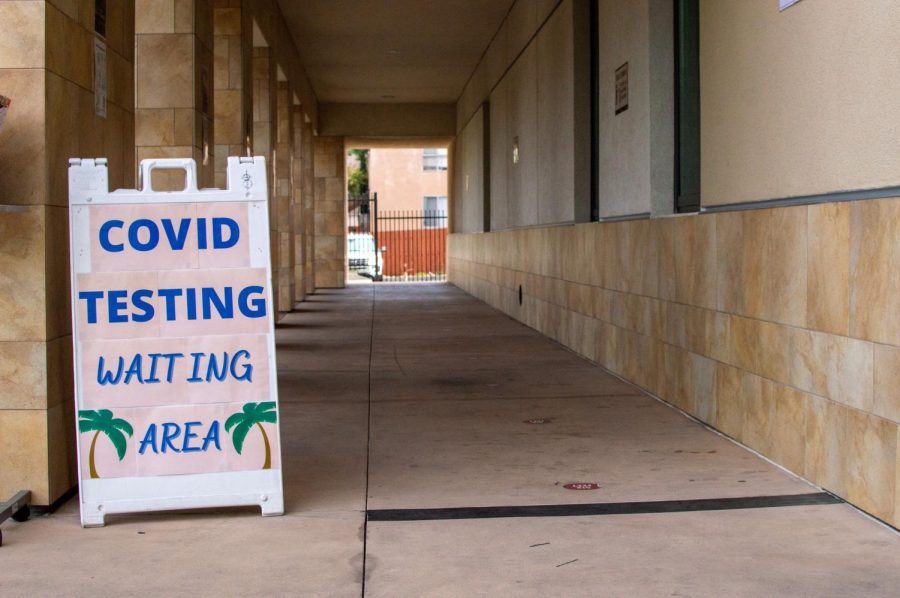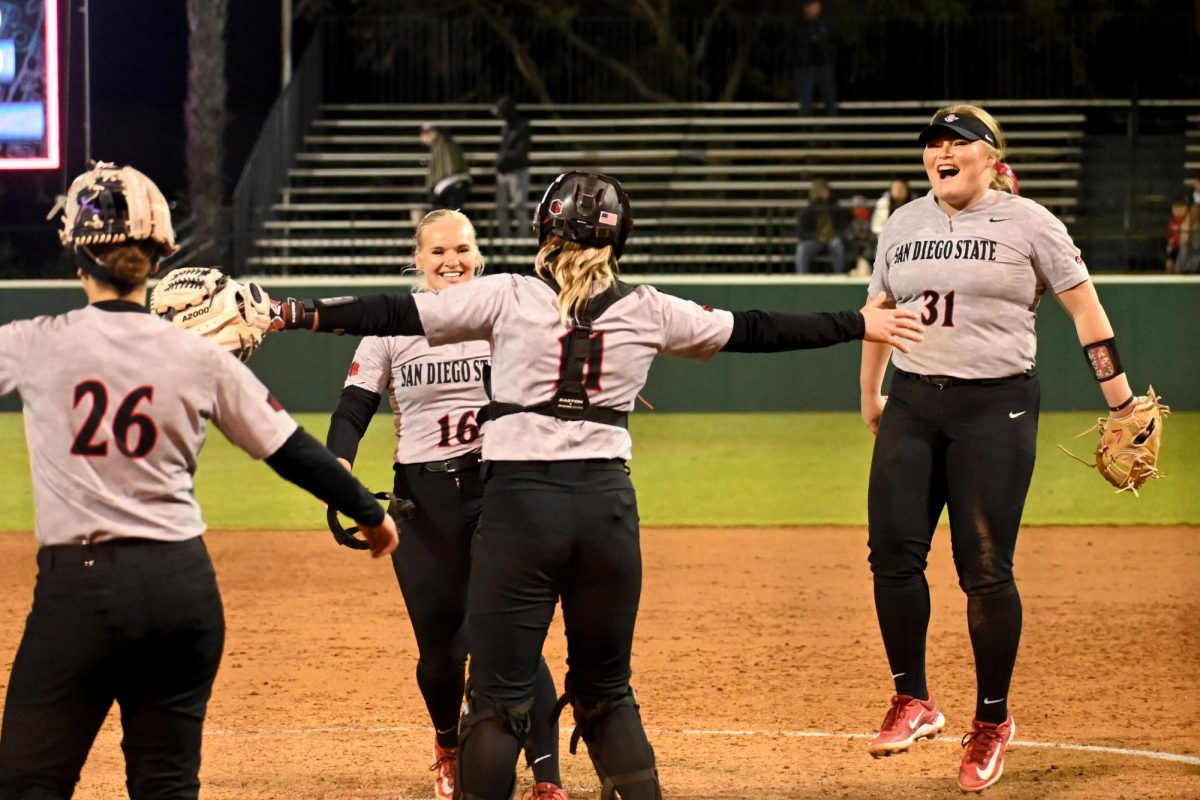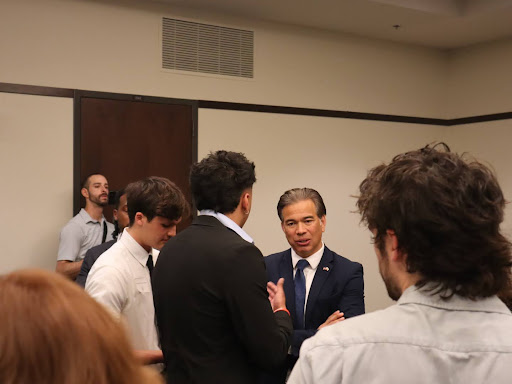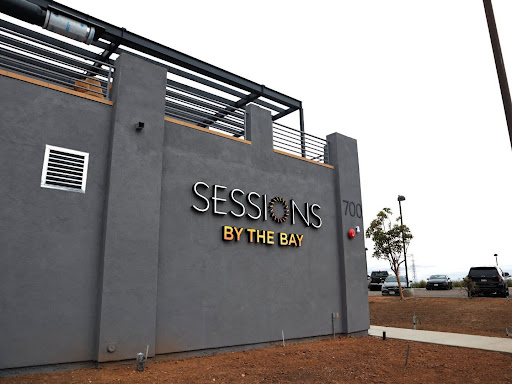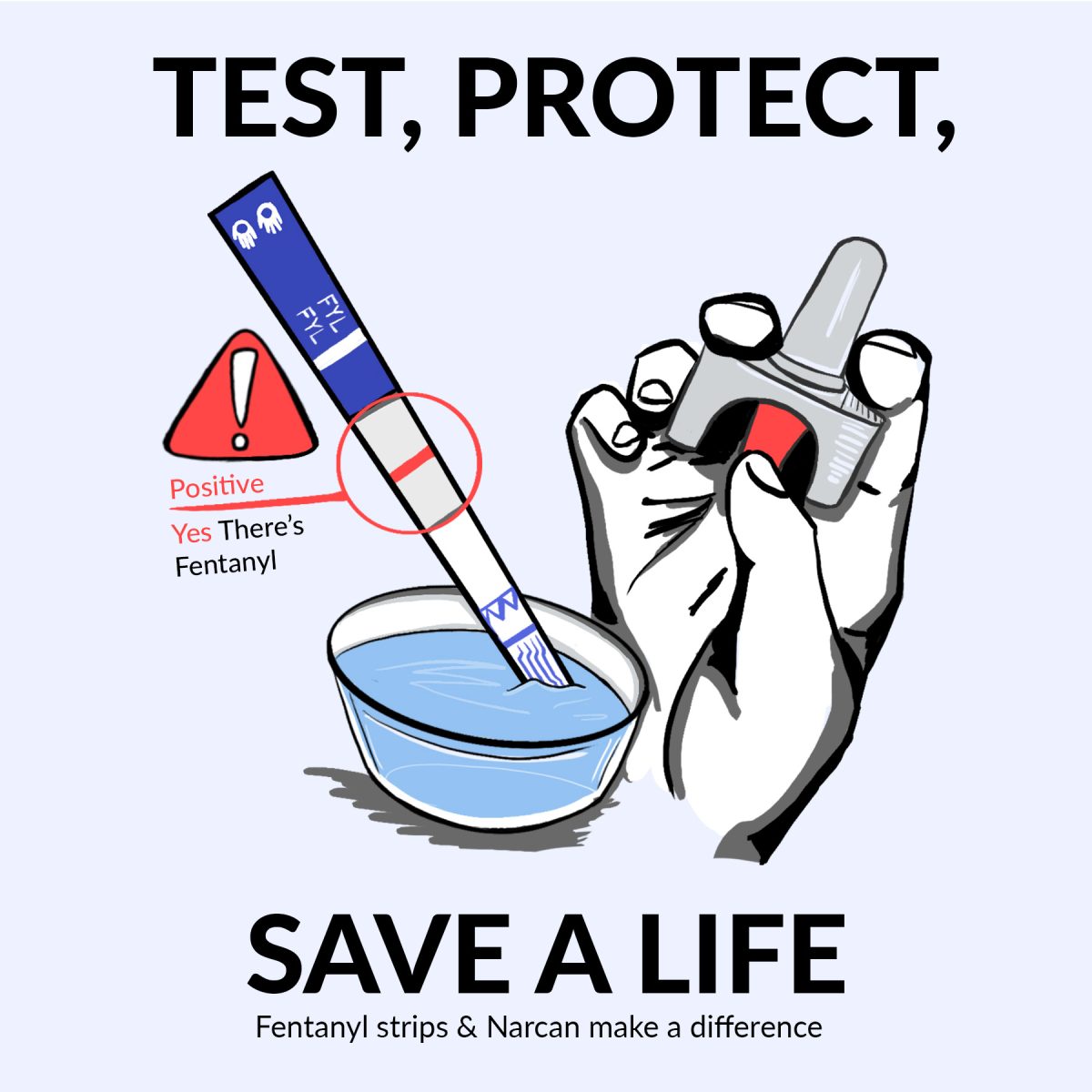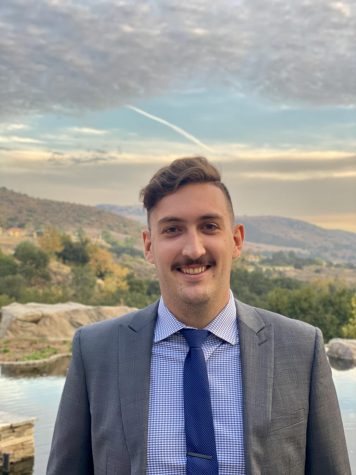Since the start of the semester, San Diego State has reported 1,520 confirmed and probable cases of COVID-19. This is the highest number reported at any college or university in California.
SDSU reported 156 new cases between Nov. 14 and Nov. 22 after reporting only 54 cases the week before, according to Student Health Services data.
Of the total cases, 1,475 are among students, 27 are faculty/staff, two are vendors/contractors and 16 represent visitors, according to SHS.
The recent spike in cases among students led to SDSU announcing that its remaining in-person courses would transition online and remain virtual for the remainder of the fall semester ending Dec. 17 and that all on-campus residents returning to the dorms after the break would need to get tested upon their arrival.
However, many students living on-campus have opted to stay home for the last two weeks of the semester.
According to Cynthia Cervantes, the director of SDSU’s Office of Housing Administration, over 500 of the 2,200 students living on-campus are expected to stay home after Thanksgiving break and return for the spring semester.
Since the beginning of the semester, about 1,200 students have moved back home from on-campus housing, according to Cervantes.
So far, only one individual in relation to SDSU has been hospitalized due to COVID-19.
Of the cases associated with the university, 1,051 expressed symptoms while 182 cases were asymptomatic and 200 cases cannot be categorized as symptomatic or asymptomatic as of Nov. 18, San Diego County Health and Human Services Communications Officer Sarah Sweeney said.
At the beginning of October, the university began requiring students enrolled in in-person classes to get tested for COVID-19 every two weeks in an effort to drive the number of new cases down, according to an email from President Adela De la Torre.
A limited number of courses resumed in-person on Oct. 12 before the recent increase in cases caused the university to stop in-person instruction after Thanksgiving break.
“I think (the testing requirement) should’ve been implemented at the beginning of the semester,” computer engineering senior and Academic Mentor Mark-yves Guanin said. “That would’ve prevented a lot of those cases that occurred during that time. I do feel like it helps or at least it helps me feel more comfortable living on campus.”
The Student Health Services kiosk on campus tests about 200 students daily, according to SHS.
Mandatory testing is ongoing for students living in on-campus housing, who are taking in-person classes and who are involved in university research, all of which are a part of the surveillance testing plan the university launched Sept. 29.
Guanin lives on campus in a residential hall and his work as an academic mentor requires him to come into contact with many students.
“The school probably shouldn’t have opened in the first place,” Guanin said. “There’s going to be parties regardless and students not following the rules. At the beginning, I feel like the school hadn’t been doing much to prevent parties, but lately, like with the cease-and-desist order for Halloween weekend–they’re doing the best they can to mitigate cases.”
Those who work on campus and were previously still attending classes in-person would get emails reminding them of the testing requirement every two weeks. After getting tested, students would have an indicator on their webportal clearing them to attend classes.
Students can get tested at any county site or at SDSU’s Calpulli Health Center.
Test results were available within two to four days depending if it was a weekday or weekend, Guanin said.
“Since the holidays are coming up, definitely get a negative test if you’re going to go home before you go home,” Guanin said. “(The university) definitely should encourage students to get tested before traveling home for the holidays.”
The university strongly recommends those who are a part of on-campus research to avoid Thanksgiving travel.
For those students who do still plan to stay on-campus after the holidays, meal plans, other dining options and Student Health Services’ nurse triage line will be available to them.
Students who do test positive for COVID-19 are put into on-campus isolation where they are moved to an isolated space and are only allowed to leave for medical appointments, Cervantes said.
Food and any other necessary supplies are contactlessly delivered to them and students are expected to stay isolated for about 10 days. The release time varies depending on their test dates and clearance from SHS.
Those who have been exposed to an individual who has tested positive for COVID-19 must quarantine and have the option to in their own living space or in an isolation space on campus.
“We try really hard to make certain that even when they’re moved to isolation that they’re still in a really good space and have that support and connection, and that they’re transition back is as smooth as it possibly can be, especially since this is concerning for them being sick and symptomatic,” Executive Director of Residential Education Kara Bauer said.
COVID-19 Testing and Resources:
SDSU offers free COVID-19 testing to all currently enrolled students, faculty and staff. Testing on-campus is available by appointment only. To schedule an appointment, students can call Student Health Services at 619-594-4325. Online appointments can also be scheduled through HealtheConnect, SDSU’s secure online health portal.
San Diego County also operates a free, drive-through and walk-up testing site at SDSU located at 6200 Alvarado Road in Parking Lot 17B as well as a walk-up testing center at the Parma Payne Goodall Alumni Center located on 55th Street. Both sites are open to the public and do not require an appointment, more information is available at the San Diego County Health and Human Services Agency testing website.




